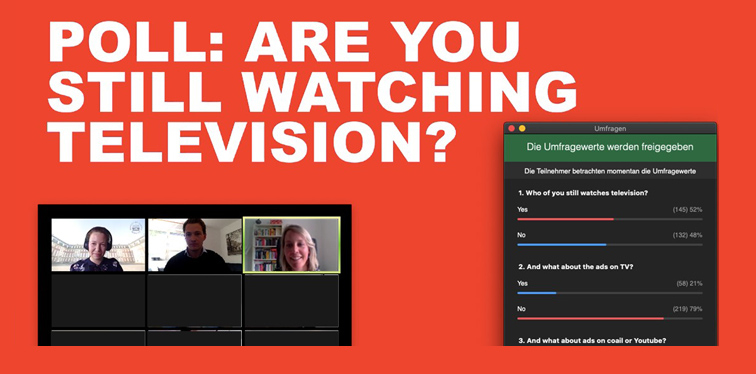Virtual Guest Lecture in Market Research by Dr. Lisette Kruizinga – de Vries

On Thursday, April 30, Dr. Lisette Kruizinga – de Vries (Senior Methodologist at DVJ Insights) held a virtual guest lecture in Market Research (Bachelor course taught by Prof. Dr. Lara Lobschat) on “How we conduct Market Research at DVJ Insights”. During her presentation, Dr. Kruizinga – de Vries comprehensively outlined market research techniques applied at DVJ Insights and their impact in the real business world. DVJ Insights, known for its innovativeness in adopting new market research approaches, is a Dutch marketing and analytics agency headquartered in Utrecht that aims to provide brand growth to its clients through consultancy and market research. During the course of the presentation, students were encouraged to see how already studied and newly introduced market research techniques enhance the understanding of how online advertisements are perceived among consumers.
Of the wide range of techniques and tools presented by Dr. Kruizinga – de Vries, special attention was paid to online research approaches conducted on large sample sizes. This concept – called “Mass Qual” – allows to draw inferences on the effectiveness of online advertisements. For example, DVJ Insights makes use of an online eye-tracking technique where the mouse movements of subjects are analyzed in order to assess eye movements and ultimately attention on websites. Another technique is the moment-to-moment approach, where subjects are able to rate a visual advertisement at each point in time via a slide bar. This method allows e.g. to eliminate less persuasive scenes, thereby increasing effectiveness and ultimately optimizing the cost-benefit calculus for the client using this advertisement. Of special interest was furthermore the approach of conducting a copy test. In this case, subjects visit a mock-up page (for example similar to YouTube) where an advertisement is shown. The aim of this approach is to mirror the typical online environment subjects face when watching and evaluating visual advertisements before starting a video on YouTube. Subsequently, Dr. Kruizinga – de Vries presented valuable insights of a meta-analysis pointing to the relationship of the ability to skip online advertisements and brand recall among certain age groups. Results show that non-skippable videos do not necessarily outperform skippable videos.
The high degree of virtual interaction during the guest lecture was further enhanced by conducting several polls revealing students’ interest in Market Research and the importance of YouTube relative to television in placing online advertisements. We thank Dr. Kruizinga – de Vries for sharing her market research expertise during the enriching guest lecture.

